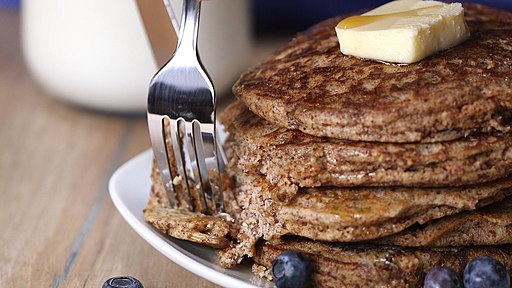
The Significance Of Pancake Day
Pancake Day, Shrove Tuesday or Mardi Gras (French for Fat Tuesday); whatever you call it and whether you’re in eager anticipation from Valentine’s Day onwards – or it crêpe-s up on you (get it?) each year -, this pre-Lenten celebration day is far more than an opportunity to clear out the larder. Read on for an overview of the fascinating history and legacy of Pancake Day, from Christian origins to present-day customs and literary ditties.
All Around The World
The prefix ‘pan’ of the word pancake refers, very logically, to the fact that these scrumptious cakes are typically cooked in a hot pan. However, ‘pan’, of Greek etymology, also means ‘all’. Think of the words panoptic and panoramic (all seeing), pandemonium (place of all demons) and of course the obvious example of the past two years, pandemic (a disease affecting all people). The implication of inclusivity is apt considering the many pancake variations around the world: flipped with a spatula or tossed with a flick of the wrist, sweet or savoury, rolled, folded or stacked, fat and fluffy or paper thin, stuffed or topped with just about anything – the pan is your oyster.
Shrovetide
The pancake’s origins, however, are more humble. Shrove Tuesday, which this year falls on 1st March 2022, precedes Ash Wednesday, the first day of Lent. The Roman Catholic practice of shriving means to confess one’s sins to a priest and be prescribed penance to obtain absolution. Shrovetide is therefore about preparing for Lent, when Christians eschew luxuries to observe the 40 days that Jesus spent resisting temptation in the wilderness.
Shrove Tuesday is the feast before the fast, and pancakes are an ideal way to use up fat and dairy products. Nowadays, we usually give up things like meat, chocolate and alcohol. Around the world, Shrovetide celebrations such as Carnival and Mardi Gras can last for several weeks and may also include extravagant festivals, street parties and masquerades, as well as gastronomic delicacies. In the UK, we might also run pancake races or play football games.
Pancake Culture
The cultural significance of pancakes can be found in Western literature, with texts such as Shakespeare’s As You Like It (1623), Oliver Goldsmith’s sentimental novel The Vicar of Wakefield (1766) and Robert Seethaler’s The Tobacconist (2016) all containing references to them. Christina Rossetti’s famous rhyme Mix A Pancake (1893) even includes vague instructions for making them.
Here’s my confession: I don’t usually follow a recipe. Just a little heap of flour, maybe four or five tablespoons, one egg and milk until it looks about right. Voila! My topping of choice is usually lemon juice and sugar. Whether your own efforts pan out quite nicely or end up tossed right out the window, Pancake Day is always flipping good fun.
Links:
https://www.bbcgoodfood.com/howto/guide/pancake-recipes-around-world
https://christianity.org.uk/article/what-is-lent
https://www.oxfordreference.com/view/10.1093/oi/authority.20110803100503811
https://www.youtube.com/watch?v=ltXfR_TIlEE – The Economist video about Carnival.
https://blog.english-heritage.org.uk/pancake-day-traditions/
https://frompagetoplate.com/2018/02/13/pancakes/